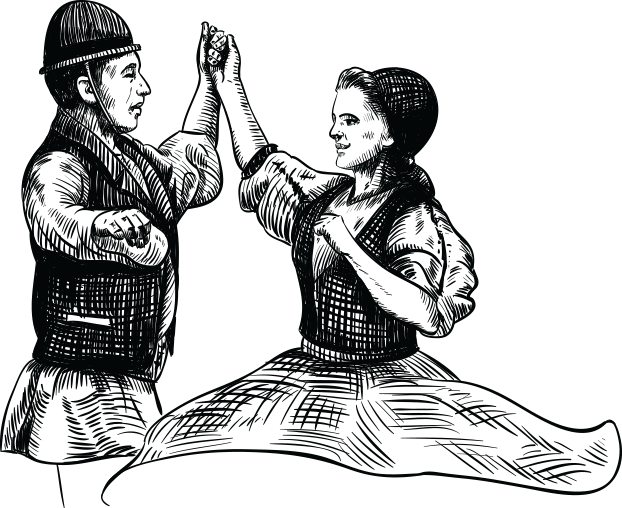
The Transylvanian spirit
Half a joke, half an old saying, in Transylvania it is often said “Hurry up slowly.” This is also true in Medias, where life is generally flowing slowly, just like the waters of the Tarnava Mare River. However, Medias succeeds to be always surprising and to offer a very pleasant experience to all who want to know better the life of the city, its inhabitants and all those little details that make up its own personality.
Leisure activities
Right from the beginning of spring, King Fedinand I Square is very animated, with people of all ages enjoying the first rays of the sun. In general, if you want to keep up-to-date with the latest events in the city, talk about the latest results of the local football team, or chit-chat by commenting on political events, it’s impossible not to find someone willing to listen to your stories in the central park.
On weekends, if the streets appear to be more empty than usual, the people from Medias often retreat to the Greweln area, especially when they want to flee from the summer heat to the shady shelter offered by the forest. Or, if the weather is nice, the dam of Ighisul Nou is the ideal place for a picnic or a barbecue, from where the traditional “bacon with onion” is not missing. Besides being a popular place among those who want to get away from the city’s hustle and bustle, here one can seeplenty of amateur fishermen, who, not just a few times, managed to capture some large fish here.
Fairs and outdoor celebrations
Maintaining its tradition of old commercial and craftsmanship center, the “Days of Harvest” are organized every autumn in Medias, a good opportunity for the small agricultural producers around the city to present their produce. From fresh fruits and vegetables, to jams, cans, pickles or cheeses, the people from Medias rush to indulge themselves with traditional dishes. And speaking of outdoor events, the large outdoor celebrations are not forgotten. In recent years, the tradition of the “maial”, the old Saxon celebration organized each year at the beginning of May, was revived.
Of course, the tradition of “fair days” has remained. The agro-food market has been modernized and it’s open every day, but the locals and inhabitants of the surrounding villages have become accustomed to coming to the market especially on Thursday, when it was usually a fair day. Thus, on Thursday, the market is very busy, the area becoming generally crowded.
Football fans of all ages
If it is a match day, the Gaz Metan stadium is animated by the cries of encouragement of the city’s fans, notin a small number, who are constantly encouraging their favorite football team. Like any Transylvanians, most people are quite temperate, so there are no unpleasant incidents and the stadium is filled with people of all ages, from small children to seniors.
Small dictionary of “Transylvanian words” in Medias
Last but not least, as in any place you visit, it is good to be able to communicate using the language of the locals. Not that the people of Medias don’t speak Romanian, but we also have our regionalisms, common for other areas of Transylvania that you should know. Here are some of them:
A
apăi = then
B
barem = at least
bistoș = sure, certainly
brișcă = knive
C
canceu = jug, pitcher, used usually for water or wine
a căpăta = to get, to receive something as a gift
chisăliță = borsch
cinaș = nice, beautiful
ciorofleacă, cioroplișcă = half-melted snow, mixed with mud
clichină = long, thick peasant coat
clop = hat
conci = bun
coșer = the place where corn is kept or it can be used in different expressions to suggest that something is not normal / regular eg. “Something is not a coșer around here!”
cucuruz = corn
F
fain = beautiful
fercheș = elegant, put together
a se ferchezui = to get ready (as in put in on clothes, applying makeup, getting the hair done etc.)
ficior = boy
filigorie = shed
furcuță = fork
G
găzdoi = a wealthy man, with money
gingaș = pretentious
H
hintă = swing
hodină = rest
hoher = hangman, a ruthless man
I
ioi = OMG!
J
jinars = brandy
L
laibăr = a thick vest
M
mălin = lilac flower
minten, mintenaș = quick, in a minute
musai = absolutely
N
ni = look! there!
O
oablă = is mainly used in the expression “oablă treabă!”, meaning “clear, simple work”
P
porodici = tomatoes
R
rântaș = sauce made from flour roasted in oil, which is added to various dishes
Ș
șogor = brother-in-law
T
tulai = oh!
Z
zgâmboi, zgâmboiat = spoiled child